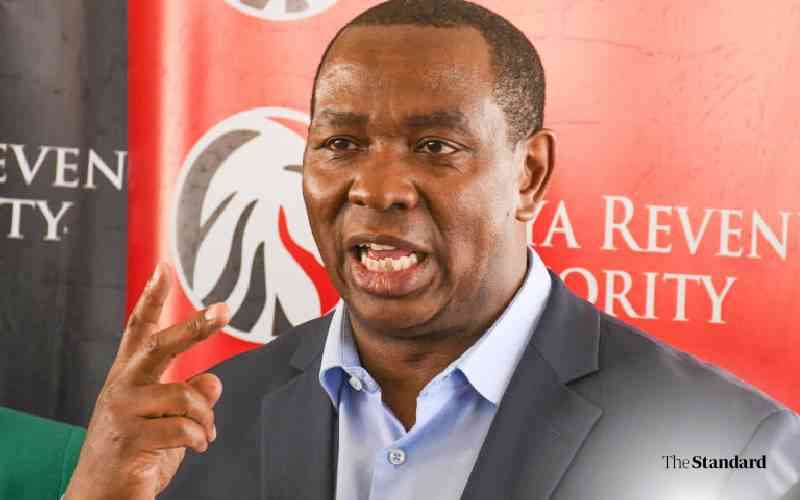
Kenya Revenue Authority missed its revenue target by Sh49.86 billion for the first quarter of the current financial year.
The taxman faces an uphill task of raising Sh2.13 trillion by close of the financial year on June 30, 2026 to meet its Sh2.75 trillion revenue target.
KRA board chairman Ndiritu Muriithi said the authority recorded reasonable growth in the first quarter to September 30, despite missing its revenue targets.
“It is a reasonable growth, but we are certainly not where we would have liked to be. What we have seen is very good performance in customs revenue, and slightly poorer performance on domestic tax,” Muriithi said during the KRA Summit last week.
KRA, however, projects that domestic tax revenue will increase in the next quarter.
In September, the purchasing managers' index ticked up as companies reported improvements in output.
The taxman had a revenue target of Sh707.025 billion for the period between July and September 2025.
However, it collected Sh657.170 billion in that same period.
A report on revenue performance shows that in the first quarter, the authority recorded a year-on-year growth of 7.1 per cent and a performance rate of 92.9 per cent against target.
“Exchequer revenues recorded a performance rate of 92.2 per cent against the quarter one target, and a year-on-year growth of 6.9 per cent,” the report says.
This comes on the back of poor performance from the VAT segment, amid high cost of compliance claims from segments like the small and medium-sized taxpayers.
To counter the issue of complex tax processes that hinder compliance, KRA says it is digitising all its processes and investing more in technology.
With an employment upturn- companies reporting increased hiring, according to KRA, domestic taxes may perform better in November and December.
“VAT did not perform as well as we wanted it to perform, Pay As You Earn did not perform as well.
Stay informed. Subscribe to our newsletter
"But because in September companies reported that they are now beginning to rehire, it means the number of people available to pay as you earn is higher,” Muriithi said.
With most Kenyans working in the informal sector, KRA says there is a gap in personal income tax, hence it is banking on technology to get small companies into the tax bracket.
KRA revenue target of Sh2.75 trillion to finance this year's budget is pegged on improved tax compliance measures.
But taxpayers have faulted the agency's aggressive revenue mobilisation, saying it is disrupting business operations, especially for small businesses.
The authority has blamed the issue of multiple interventions to its workflow that is not digitised.
“That is actually why we are digitising all our processes and investing more in technology,” Muriithi said.
Taxpayers, especially small traders have raised concerns over high cost of compliance, which reduces goodwill to comply.